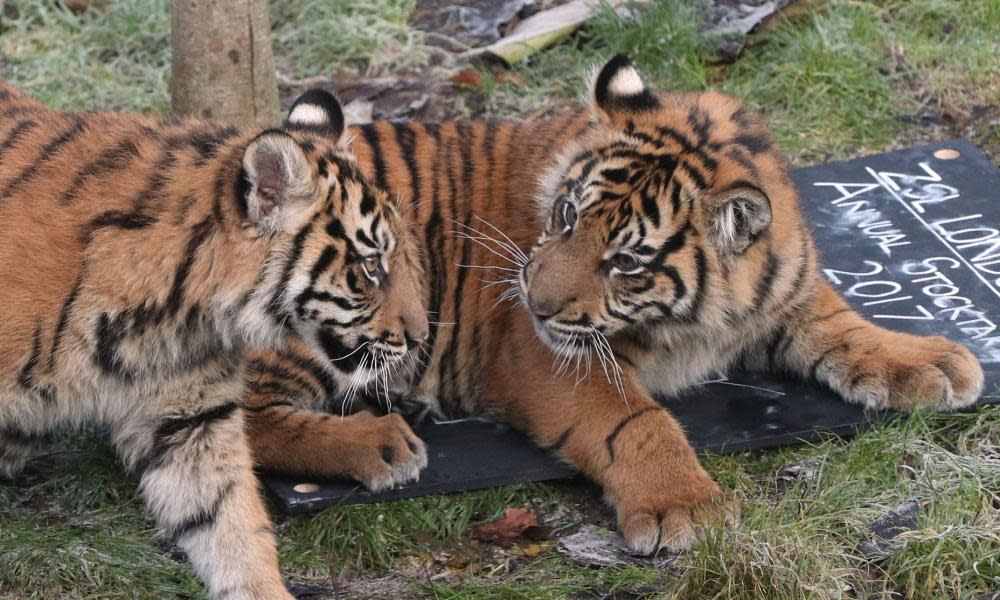Brexit could endanger rare species, say British zoos

British zoos fear Brexit could endanger rare species by ending the free movement of animals across Europe.
If Britain severs ties with Brussels without a deal, UK zoos would effectively be thrown out of EU-wide breeding programmes and forced into protracted negotiations country by country, according to the British and Irish Association of Zoos and Aquariums (Biaza).
Kirsten Pullen, Biaza’s chief executive, said animals with shorter life spans, such as rare types of rodents, were among the most vulnerable should Britain be left out in the cold by a no-deal departure from the union.
She accused the government of a concerning “lack of clarity” which was causing uncertainty in the sector and said zoos may have to “re-evaluate” what they could do.
Pullen said: “It is hard to pinpoint a particular species within our breeding programmes because all of them could potentially be impacted if we suddenly can’t deal on a European basis, or it’s much harder to deal on a European basis.”
There is currently free movement of zoo animals across the EU because all member states sign up to the same high standards of health and welfare.
Zoos work together in cross-border partnerships so they can find mates and draw on a bigger gene pool, helping to ensure the survival of rare and endangered animals.
The sharing of resources has yielded a series of success stories including the moving of Sumatran tiger Joao from Krefeld zoo in Germany to Dudley zoo in the West Midlands in 2013, where he has been partnered with his “girlfriend” Daseep.
And this month, the all-female herd of elephants at Twycross zoo in Leicestershire are getting ready to move to the continent as part of the European breeding programme, while The Deep aquarium in Hull, East Yorkshire, has sent six zebra sharks to five different zoos across Europe.
Pullen said: “One of the basic tenets of a breeding programme is that you need to have roughly 200 animals of a wide genetic variety to make sure that you can minimise any potential in-breeding effects or anything like that.
“When you are talking about something like the white rhino, obviously they take up quite a lot of space so no one zoo can do it, and we would be hard pressed to do it within the UK.
“So, it has to work cooperatively across a European basis to make sure we can achieve those numbers.”
There is also the fear that curbs on travel between the UK and EU countries could hinder the ability of zoologists to move freely, stifling talent and undermining conservation.
Pullen said Brexit could generate “potential for opportunity” as EU laws have made exchanging animals with countries outside Europe difficult.

 Yahoo News
Yahoo News 
